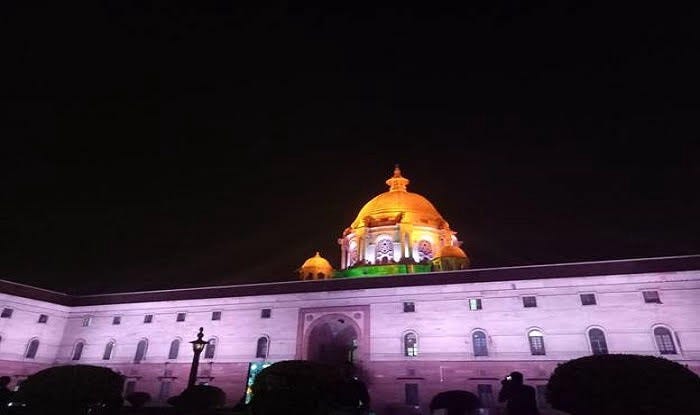“16 kala sampooran adhikari”
Not a part of the herd
IAS officers are generally regarded by the politicians and the public alike as conservative, risk-averse, slothful and inefficient, when it comes to good, citizen-centric governance. The bumbling Indian Bureaucracy is not infrequently perceived as a stumbling block and even as an albatross around the neck of a Government that wishes to follow fast-track economic reforms. However, there are a few young IAS officers who emerge as blue-eyed boys of the Chief Ministers and the Ministers in various States and are hugely sought after during transfers and postings.
Qualities of the high-flyers
So, are their any qualities that distinguish such officers from the herd and make them high-flyers, without the concomitant risk of falling a prey to procedural irregularities or financial improprieties? We attempt below what is by no means an exhaustive list. The reader is welcome to add a few more attributes that would add their deity-like status.
1. They exude positivity and optimism. Never say “It can’t be done”. They simply say that we shall try and find a way to get it done. (NB: Their actions may not be fully consistent with their words.)
2. They speak in the language of the political executive — no, not just the language in the literal or the linguistic sense but also in the use of the rustic idiom. Please note, they need not necessarily belong to the State in which they are serving.
3. They always answer their mobile phone when a Minister or an MLA, irrespective of the party affiliation, is calling. Sometimes, they deliberately don’t answer the phone, only to ring back within 5 minutes to five hours. This increases their impact.
4. They never issue the word “problem” when talking to their superiors. In fact, they have banished this word out of their vocabulary. They simply say, “Sir, there is one minor issue………..”
5. They never condemn anyone categorically; they kill with kindness. When they have to stab anyone, they start with a superlative: “He/ She is an excellent officer, knows the subject very well, very thorough, but…………….” Leave the negative trait to the fertile imagination of the trained but “kacha” political ears.
6. In order to be effective professionally, they contrive to be able to formally or informally report directly to the CM, or, at least, to be able to access him directly. They, however, do not omit to brief the Minister-in-charge or their immediate IAS boss subsequently, albeit in very sketchy and telegraphic format. Crucial and confidential details of the chat with the CM lie safe with them and are never divulged to anyone, not even their spouse or kids.
7. They prefer to head autonomous organisations that have their independent sources of income, so that there is minimal dependence on the State Finance Department. If the CM is the ex-officio head of the same, the better.
8. They have just the optimal amount of PR; not too much so that you may arouse envy and jealousy and not too little, so that your contribution to the cause of good governance misses the people’s eye. However, while they assiduously cultivate their own personal brand, they are careful to give credit to the political masters. Their Press Notes generally begin with: “On the instructions of the Hon’ble CM…..”
9. They engage all the stakeholders but do not give disproportionate weightage to any one class for pressure groups.
10.Prefer infrastructure-oriented organisations, rather than those dealing with social sector or human resource development. In the former, the stakeholders to manage are limited and in a position of relative weakness qua you.
11.They would much rather take an important matter to the Council Ministers (Cabinet) for the final approval, even if it’s within their competency or that of their minister to do so. “Collective Responsibility” is good for everyone and the best-known risk-mitigating mechanism in the governmental setup.
12.They do not spend more than 2–3 years in any organisations. In a longer innings, the problems that you are unable to solve begin to stand out like sore thumbs. Moreover, the responsibility and accountability of delayed and stalled projects becomes easier to fix qua you. If possible, they try and ensure that a junior who is well disposed towards them steps into their shoes, when they choose to exit.
13.They are tech-savvy but do not fully exhibit their technical expertise, lest they be asked to move to organisations like the Information Technology Department or the InfoTech Corporation.
14.They are adept at recording file noting and reference to rules and policy etc. in order to justify and prop up the proposed decisions/ course of action. However, when they are recording on file the gist of a verbal discussion, they are careful not to write who said what…… they stick to the third person: “After discussion, it was felt……..” This saves motives being later attributed to specific persons or the divergence in views being later exploited in audit etc.
15.In general, they do not collude with the political executive in their endeavour to make a quick buck out these projects, but tactfully look the other way should they detect any such activity. In any case, the paperwork is kept tickety-boo.
16.Last but not the least, they do not identity themselves 100% with the party in power; they are equally responsive to the requests of the opposition leaders, whose demands in any case are likely to be quite modest. This small investment in a penny stock can give them multiple returns should the Government change after elections.
Feedback is welcome
Kindly tell us if you know any of these high-flyers? How many of the 16 “kalas” they possess? Do they have any other qualities that we may have missed?
___________________________________________________________________
K.B.S. Sidhu. The author is an IAS officer of 1984 batch of Punjab cadre. The views expressed are his own.
He can be reached on kbs.sidhu@gmail.com or @kbssidhu1961 or https://www.facebook.com/kbs.sidhu
___________________________________________________________________





